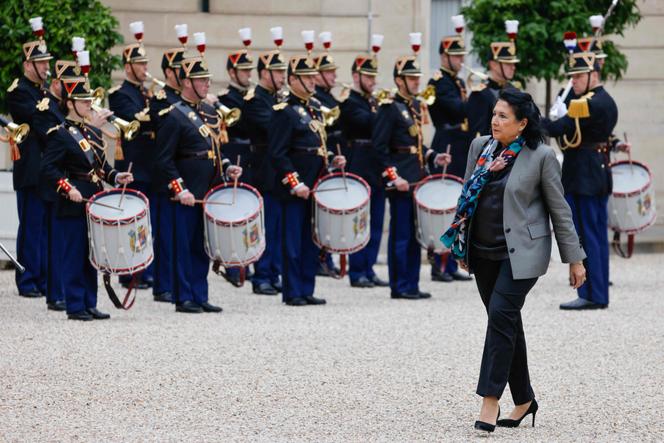


Georgia's ruling party will renew attempts to impeach pro-Western President Salomé Zurabishvili, who is seeking to unite opposition forces ahead of parliamentary elections, the speaker of parliament said, on Monday, October 7.
Last year, lawmakers from the ruling Georgian Dream party failed to secure enough votes to remove Zurabishvili, whom they accused of making foreign trips without government permission to lobby for European Union membership for Georgia.
"The parliamentary majority decided to initiate another impeachment procedure," parliamentary speaker Shalva Papuashvili told a news conference. "Salome Zurabishvili's term in office runs out this year and her removal through impeachment would only reduce her term by a maximum of one month," he added. He alleged that Zurabishvili – who has limited powers under the constitution – recently violated the law by making official visits to Brussels, France, and Germany without the prime minister's consent.
Over the last two years, Zurabishvili has been at loggerheads with the Georgian Dream government, which faces mounting accusations of democratic backsliding and derailing Tbilisi from its EU membership path.
She has recently intensified efforts to forge a united opposition front against Georgian Dream as the country gears up for crucial parliamentary elections scheduled for October 26. On Monday, she announced consultations with opposition parties to agree on a joint candidate for prime minister.
Last week, Zurabishvili, 72, said that if the ruling party won the election, Georgia would move further "away from democracy" and towards its past under Moscow control, a situation it had worked hard to escape.
"We have a quasi-referendum on the choice between Europe or a return to an uncertain Russian past," the French-born Georgian leader told Agence France-Presse (AFP) in a telephone interview. She said the parliamentary elections were "existential."
In June, Georgia's traditionally fractured opposition parties signed up to a pro-European policy platform advanced by Zurabishvili, which outlines far-reaching electoral, judicial and law enforcement reforms.
The ruling party is seeking to win a super-majority to allow it to constitutionally ban pro-Western opposition parties. Yet recent opinion polls show that four leading opposition alliances are poised to garner enough votes to form a coalition government.
Having initially pursued a liberal pro-Western policy agenda when it came to power in 2012, Georgian Dream has over the past two years intensified its anti-Western and anti-liberal positions. The EU has repeatedly said Georgia is drifting away from its stated ambition of joining the 27-member bloc.
